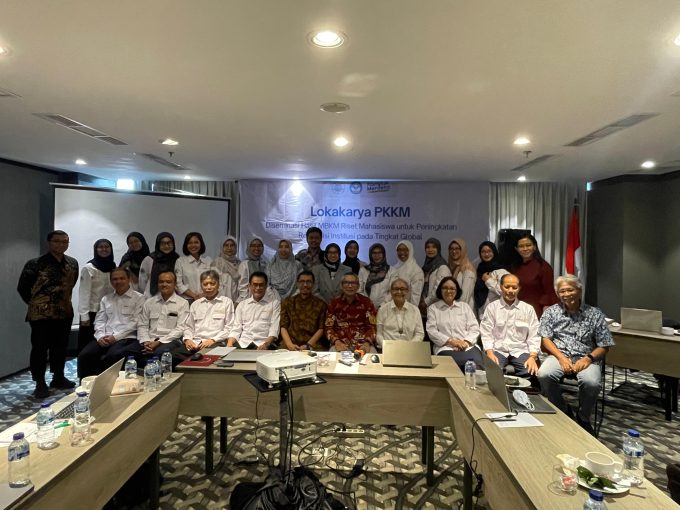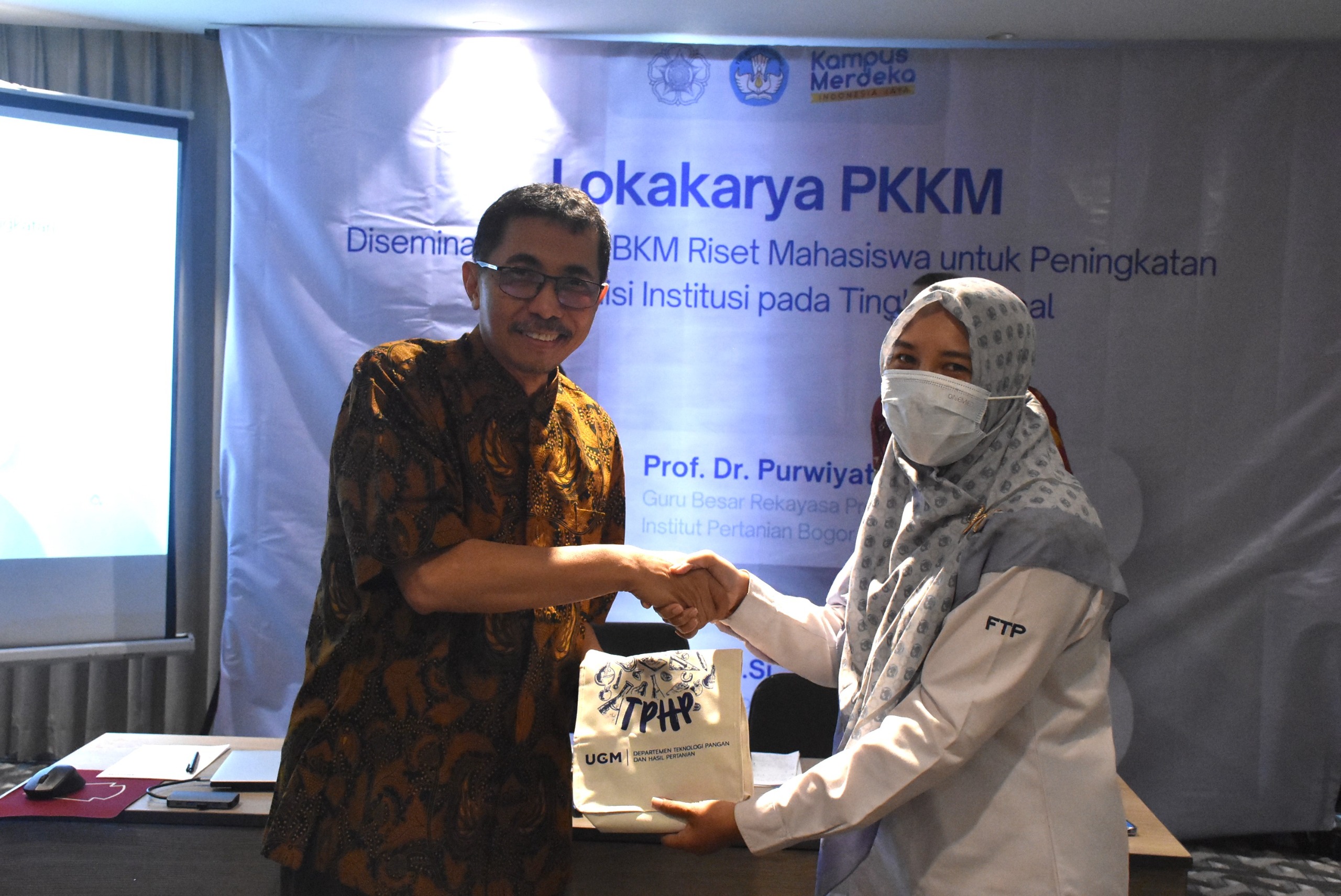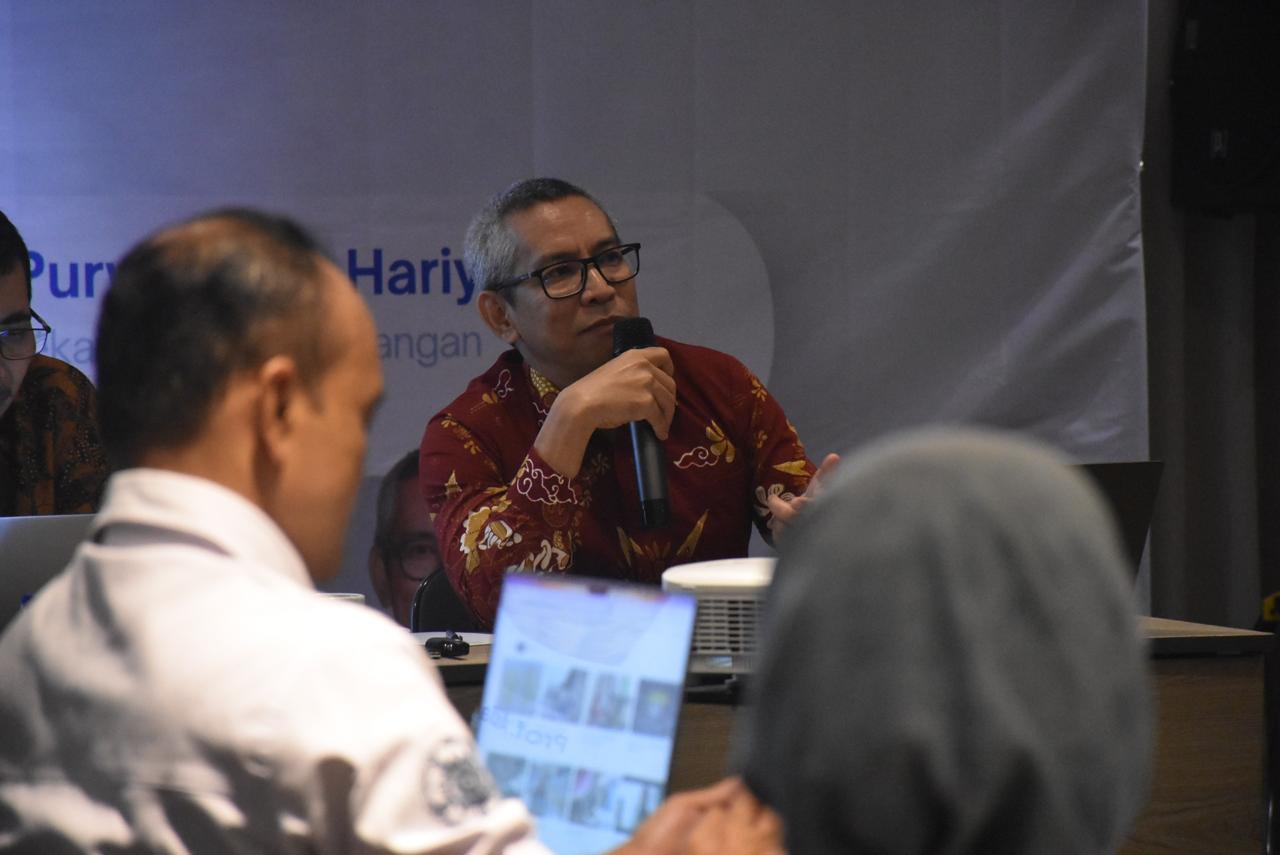
The Department of Food and Agricultural Product Technology (TPHP), Universitas Gadjah Mada (UGM), held a Workshop on the Dissemination of Student Research Outcomes as part of the Merdeka Campus Competition Program (PKKM) on Monday, October 28. This workshop aimed to strengthen the institution’s recognition on a global scale and featured two prominent keynote speakers: Prof. Purwiyatno Hariyadi (Professor at IPB University) and Prof. Ardiansyah (Professor at Bakrie University), both well-known for their strategic approaches to institutional reputation building.
 Prof. Purwiyatno Hariyadi delivered a session titled “Collaboration Strategies to Enhance Institutional Reputation.” He emphasized that research collaboration is key to strengthening academic quality, expanding research impact, and driving innovation and product development. He elaborated on three main collaboration models: Triple Helix, involving government, industry, and academia; Quadruple Helix, which includes community involvement; and Penta Helix, which incorporates media to amplify research dissemination.
Prof. Purwiyatno Hariyadi delivered a session titled “Collaboration Strategies to Enhance Institutional Reputation.” He emphasized that research collaboration is key to strengthening academic quality, expanding research impact, and driving innovation and product development. He elaborated on three main collaboration models: Triple Helix, involving government, industry, and academia; Quadruple Helix, which includes community involvement; and Penta Helix, which incorporates media to amplify research dissemination.
Prof. Purwiyatno noted that research publications should not be limited to scientific journals but also disseminated through more accessible forms like magazines and leaflets to reach the broader public. He also encouraged broad stakeholder engagement, extending beyond just businesses and industries.
He also discussed the potential of Functional Food Centers of Excellence, which he believes could contribute significantly to public health and reduce national healthcare costs, such as those borne by BPJS (Indonesia’s national health insurance system). He pointed out the lack of clear standards, guidelines, and codes of practice for functional foods, despite increasing consumer demand. By enhancing public education on functional foods, he hopes consumers will become more open to nutrition and health-claim-based food products.
 In his session, Prof. Ardiansyah presented “Tips for Disseminating Research Outcomes with Industry.” He emphasized that collaborative research with industry partners can significantly boost a program’s academic reputation, particularly when industry fully supports scientific publications. In such partnerships, companies typically provide research materials and formally declare no conflict of interest in resulting publications.
In his session, Prof. Ardiansyah presented “Tips for Disseminating Research Outcomes with Industry.” He emphasized that collaborative research with industry partners can significantly boost a program’s academic reputation, particularly when industry fully supports scientific publications. In such partnerships, companies typically provide research materials and formally declare no conflict of interest in resulting publications.
Prof. Ardiansyah also shared Bakrie University’s research approach, which focuses on sensory aspects to strengthen product branding and effectively communicate research results to the public. This not only supports business development but also raises public awareness of academic research.
He further discussed Bakrie University’s collaboration with industry players such as VIVA Group, which led to the establishment of a Creative Center. This initiative aims to enhance human resource capacity in the media, creative, and information technology sectors. At the Creative Center, both students and entrepreneurs receive training on the use of Artificial Intelligence (AI) to improve their tech literacy. The initiative is expected to foster more potent synergy between academia and industry and better prepare students for the modern workforce.
This workshop aligns with multiple Sustainable Development Goals (SDGs), for instance, SDG 9 – Industry, Innovation, and Infrastructure, SDG 4 – Quality Education, and SDG 17 – Partnerships for the Goals.
These goals highlight the importance of strengthening collaboration to achieve sustainable development targets. Through this workshop, the TPHP Department at UGM is expected to open new opportunities for research collaborations with industries and other stakeholders, while also enhancing its global academic reputation.
Written by: Firstnandita K
